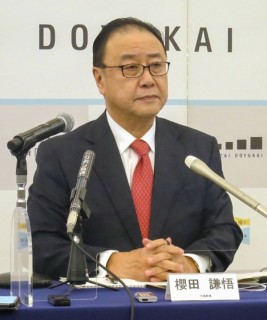Loading
Search
▼ Calls Grow For Japan To Ease Border Restrictions
- Category:Other
The business community is calling for a relaxation of border restrictions implemented to mitigate the spread of the omicron coronavirus variant, but Prime Minister Fumio Kishida is treading carefully as the public has been supportive of strict measures.
Chief Cabinet Secretary Hirokazu Matsuno adopted a cautious tone when discussing border measures at a press conference Friday, saying, “We will implement necessary and appropriate measures, taking into account the infection situation in Japan and overseas, the characteristics of the omicron variant, and the impact of the restrictions.”
At the end of November, the government banned most nonresident foreigners from entering Japan to prevent an omicron outbreak.
In a Yomiuri Shimbun survey conducted the following month, 89% of respondents were in favor of the measures, which have been called the toughest among the Group of Seven major countries.
Kishida, emboldened by the support, decided to continue the restrictions until the end of February. However, there have been doubts about the effectiveness of the measures as cases have soared in Japan.
The current situation is “a state of national isolation,” according to Kengo Sakurada, chairman of the Japan Association of Corporate Executives, who called for a relaxation of the measures at a press conference on Feb. 1.
“We are starting to see people reach the conclusion that if they cannot come to Japan, they will go elsewhere. It’s getting harder to do business,” he said.
The situation regarding the entry of foreign students has also become a serious issue.
The government considers the applications of prospective students on an individual basis if there are “special circumstances,” and only about 400 students have been approved since the beginning of the year.
Yono-gakuin Japanese Language School in Saitama can teach up to 300 students, but currently, only about 80 students are enrolled.
“Many students complain that the border restrictions adopted by Japan are not based on science,” said Ichiro Tani, the head of the language school.
There have been calls for a relaxation of the measures from within the Foreign Ministry among other government agencies, and there was a move in the Prime Minister’s Office in late January to explore easing the restrictions, but Kishida didn’t budge.
“The administration would face criticism if infections surged after measures were eased,” said an official close to the prime minister.
Before the end of the month, Kishida will have to make a tough call regarding whether to continue the measures.
Restrictions have already been eased in Europe and North America.
Travelers can enter the United States if they present a COVID-19 vaccination certificate and proof of a negative PCR test result, and people visiting Britain and France are not required to self-isolate if they have proof of vaccination, among other conditions.
Moves to ease measures have also been spreading in Southeast Asia.
In mid-January, the World Health Organization called on countries to relax border restrictions, stating that the measures would not mitigate the spread of the virus.
Countries that are continuing to implement strict measures include China, which is currently hosting the Winter Olympics.
China has tightened its visa rules and mandatory quarantines are in place. Australia has restricted the entry of foreign nationals, except travelers from Japan and South Korea, among other countries.
- February 9, 2022
- Comment (0)
- Trackback(0)


